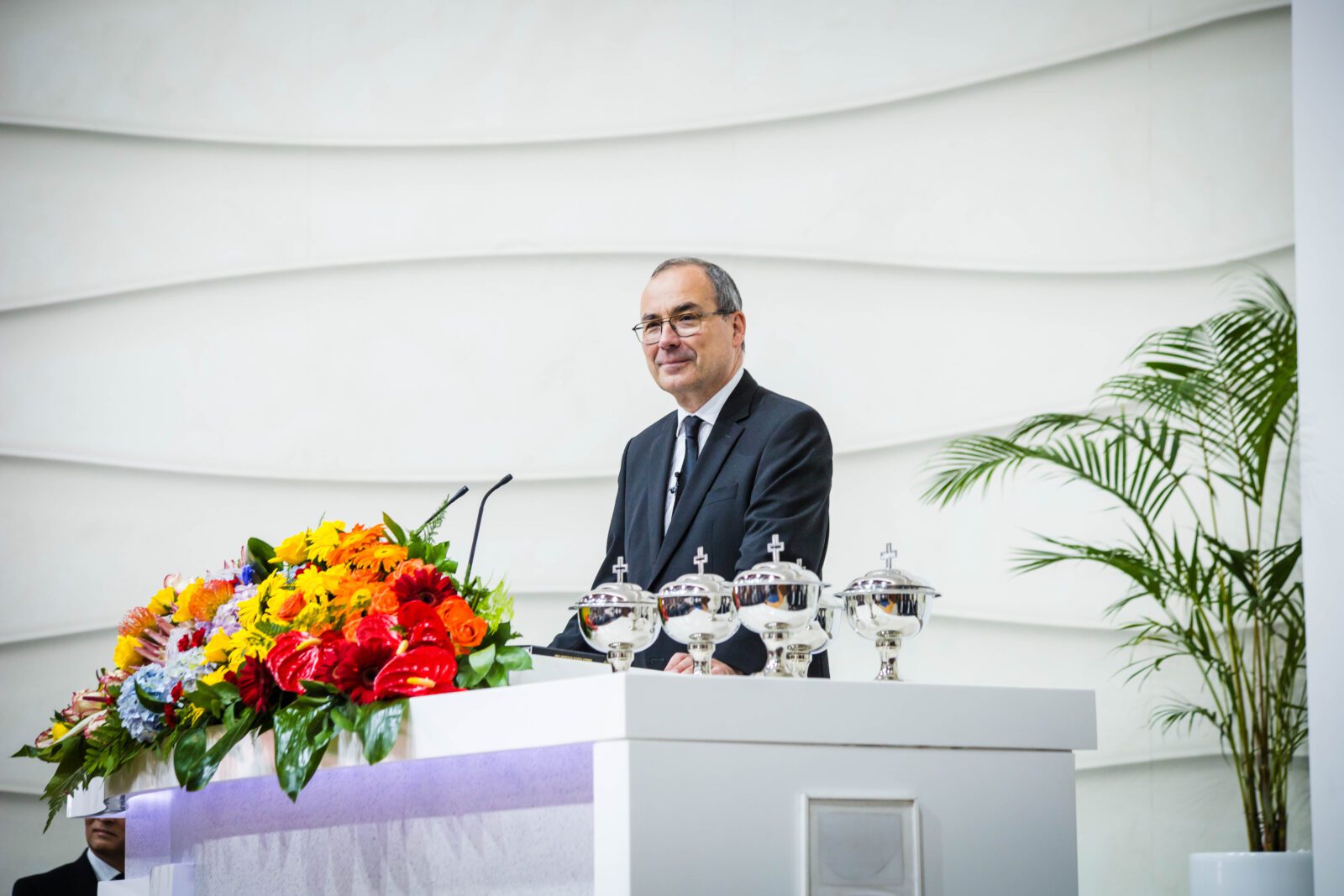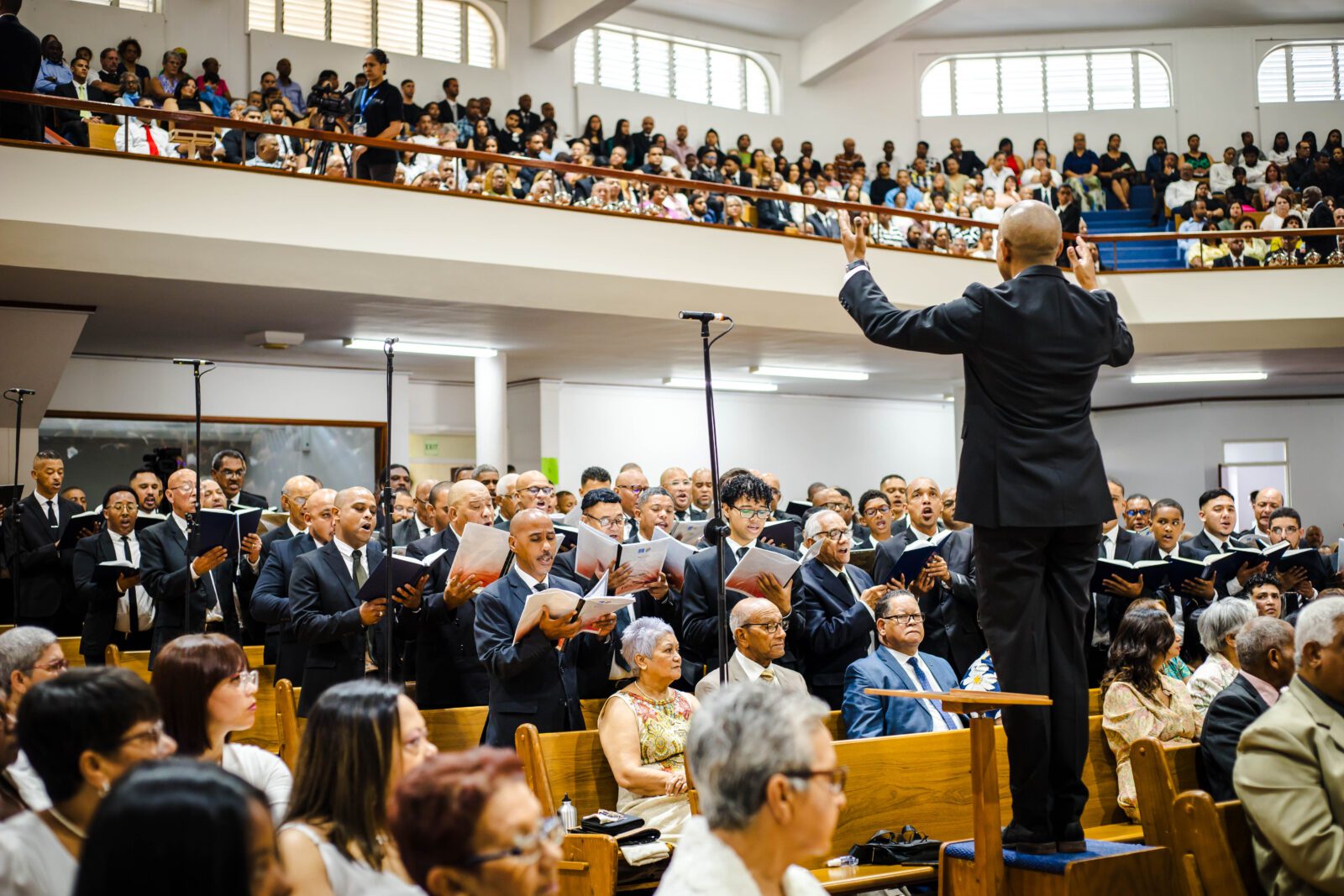
Realising your true potential and living in harmony with God and others—it is indeed possible, and it is possible right now. All it takes is for the old to decrease and the new to increase. The instructions for how to do this are taken from a divine service with the Chief Apostle.
He is the interface between the Old and New Testaments: John the Baptist foretells the coming of Jesus and testifies of Him as the Messiah. But he still preaches about the God who punishes those who do not keep the commandments. Jesus, on the other hand, introduces God as the loving Father who accepts all those who love Him and their neighbour—and believe in the Son.
John the Baptist is well aware of what needs to happen. He says of himself and of Jesus:
“He must increase, but I must decrease.” Exactly what this Bible verse from John 3: 30 means for believers today was explained by Chief Apostle Jean-Luc Schneider in a divine service on 5 December 2024 in the Retreat congregation (Cape Town, South Africa).



Between the Old and New
“Sometimes even Christians get stuck in the old covenant,” noted the Church leader. They want God to help here and now in their earthly lives, and that’s why they go to church, bring their offerings, and behave in a believing manner.
However, Jesus came and died on the cross in order to bring us eternal life.” His kingdom is not of this world. We can certainly turn to Him, we can pray to Him, and He will help us. However, “His priority is always eternal life.”
And in order to be saved, it does not suffice to merely follow a certain set of rules. One must believe in the word of Jesus and heed the law of love. “This old covenant mentality must decrease. The message of the New Testament, on the other hand, must increase.”



Increasing and decreasing
Jesus must increase—this applies to all Christians on a very personal level. “Jesus must grow in our lives”—and He must grow in the following ways:
- “Jesus must become more and more important in our lives.”
- “We want to be with Him and we want Him to be with us.”
- “We want to change ourselves such that we act, speak, and think like Jesus.”
“He can only increase if we decrease,” emphasised the Chief Apostle. And he went on to explain what this means:
- “We must always consider that the thoughts of God are always better than our own, even if our thoughts are not so bad.”
- “What He does for us is always much, much greater than what we do for Him.”
- Instead of praying, “Help me to do what I have resolved to do,” it is better to ask: “Help me to do what You expect of me.”
This growth in Christ must also come to define the relationships we have with other human beings:
- “I must think about my neighbour as Jesus thinks about him, and not as I have experienced him or as I have come to know him.”
- “The problem of modern society is this egocentric mentality.” Jesus, on the other hand, “was there to listen to His neighbour, to take care of His neighbour, and to serve.”
- “The oneness, the unity, of the congregation and of the Church, must become more important to me than my own ideas, my own opinions, and my own person.”
Not destroyed, but fulfilled
“When Jesus increases and we decrease, this does not mean that we must destroy our own personality,” Chief Apostle Schneider went on to explain. “Quite the contrary: it is not the destruction, but rather the fulfilment, of our personality.” After all, “It is only when Jesus fills our hearts that our personality can truly begin to bloom. And then our hearts will be filled with joy and peace.”
“If Jesus grows within me, I can live just as I am in perfect harmony with God and my neighbour, with others.” And ultimately: “If Jesus grows in my heart, I can serve as a source of blessing for many, many others, just as I am, with my character, and with my personality.”



The hymn was actually intended to accompany the Chief Apostle on his way out of the nave, but the Chief Apostle preferred to stay for a few more minutes and sing along: “O though joyful day” in the congregation of Retreat, Southern Africa.









